Why Insulation Is Still Important During the Summer
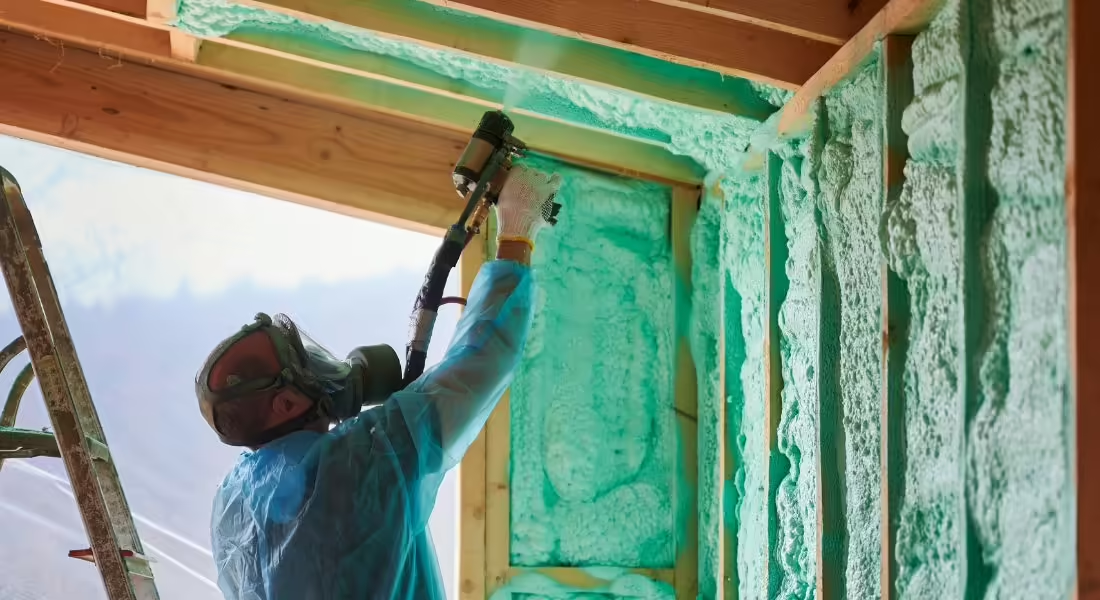
Many people think of insulation as a blanket for our home. It acts almost like a winter coat around the outer walls. It prevents the cold air from seeping into our houses during the cold winter months. This comparison somewhat accurately represents what insulation does, but there is a difference.
Insulation helps protect our house from the harsh heat of summer. Insulation has the opposite effect on the home when it’s warm outside, and it doesn’t let the humidity and heat inside. If you wore a winter coat during summer, you’d most likely end up with heat exhaustion—yikes! Let’s explore why insulation is still important during the summer and learn more about how insulation works.
How Insulation Works
Insulation works to absorb the heat your heating system produces during winter, and on the other hand, it can keep the warm air from spreading throughout the house from the attic. This area is where you’ll notice a heat spike during the day in the summer months. This cycle allows you to run your AC more effectively to save you money on your energy bills.
Convection, radiation, and conduction are the three ways that heat travels. Thermal insulation helps trap this heat no matter which way it travels, and here’s how:
- Convection: Heat travels through the air. There’s a high amount of air within the material in most insulation types, which helps trap the heat.
- Radiation: Heat radiates from a specific source, such as radiators or vents. The appropriately named radiators push hot water through standing metal devices that heat up a space.
- Conduction: Conduction is heat traveling through a material or object. A great example is how a down jacket helps retain your body heat to keep you comfortable on a cold winter day. This is the same way that heat spreads throughout the house during the summer. The sun beats down on the roof and gradually heats the home.
A Hot Attic Means Ineffective Insulation
If your loft or attic is warm, your AC unit is working double-time to keep the house at the temperature you set the thermostat. If the attic is cooking, you’re cooking. Hot air leaking into your home raises the cost of cooling down your house drastically.
Wood and drywall don’t help because these materials soak up the heat and radiate it back. With little or no insulation in the attic grabbing the heat before it has a chance to penetrate the rest of the house, it’s not even worth you trying to cool your home down. You’re wasting money at this point.
Having ductwork in your attic exaggerates this issue. The heat from the attic can turn the cool air in the ducts warm, causing your AC unit to work overtime as it gets your home to the desired temperature. Installing spray foam insulation into your attic and adding proper ventilation will help keep the heat in the attic at bay.
Why It’s Effective
When insulation is working effectively, it slows the heat as it moves between spaces. It efficiently reduces the progress of air moisture, creating an air and vapor barrier and air seal to trap air that obstructs the circulation of humidity through the walls, ceiling, and floor.
A temperature war can ensue when your attic or home isn’t adequately insulated. Insulation is critical for your home during the winter and summer months. Spray foam insulation will save you money on AC costs in the summer, as it will hold onto cold air in the summer by keeping the hot air out, preventing your house from becoming uncomfortable. It also limits the amount of heat getting through a standard cavity.
Maximize the Effects of Insulation in Summer
Well-insulated areas of your home, particularly lofts and walls, will create efficient heat barriers to keep you from baking on a warm summer day. Of course, you could add more AC units, but that defeats the purpose of utilizing insulation as an energy saver. Let’s explore a few helpful tips to make sure the heat stays outside, and that you stay comfortable inside.
- The rays coming off the hot sun can quickly heat up your home. It will shine in through your windows and raise the temperature inside. Install blinds, drapes, and curtains to block out the rays to minimize the effects of the sunshine.
- Another crucial point is air circulation. If you have excellent insulation, all the heat produced during the day won’t escape unless you allow it back outside. As the sun sets and temperatures dip, open the windows and create cross breezes. When the sun rises in the morning, close up the window and blinds so it will take a while for your home to heat back up. The coolness will follow you into the afternoon, and you’ll remain comfortable indoors as the temps outside begin to climb.
- Using fans to circulate air is excellent, but there is a way to make them even more efficient. A cheap DIY air-conditioner trick is to place a bowl of cold water, or better yet, ice water, under a fan. Turn off all other non-essential electricals to avoid raising the ambient air temperature in the house. The insulation will trap in the warm air created by anything running in your home.
Closing Thoughts
Insulation is as crucial during the summer as it is in the winter. There’s no arguing that statement. Insulation helps prevent overheating in your home by trapping the cool air. It also helps save you money on energy bills by keeping your AC unit from working harder than needed. Your home needs insulation everywhere, from the attic to the walls, and from the ceiling to the basement. These reasons are why insulation is still important during the summer.
Our team at Paragon Protection is here to help keep your home comfortable all year long. As spray foam insulation contractors in McHenry, IL, we’ll expertly install insulation in your home to keep your energy costs low and your house at the desired temperature during the summer and winter seasons. Contact us today to see how we can help your family!
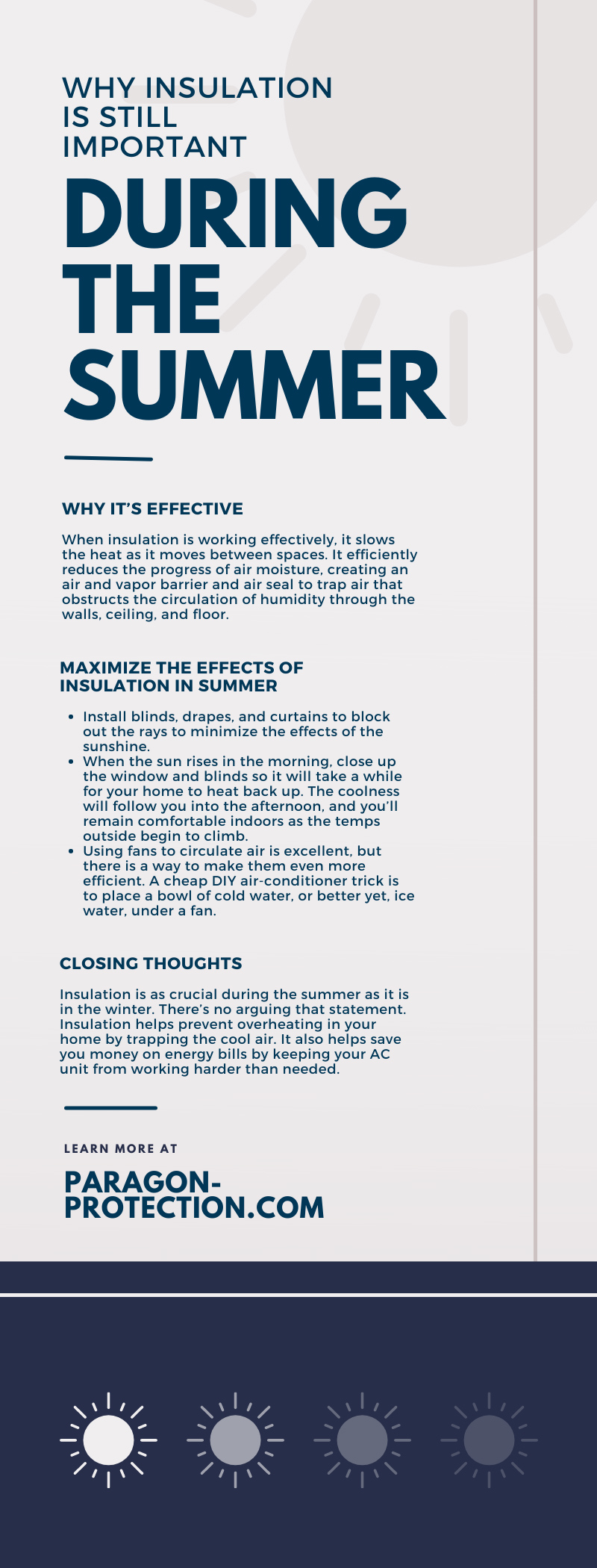

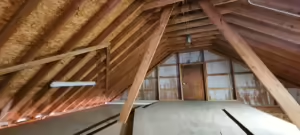
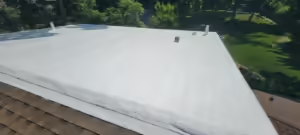
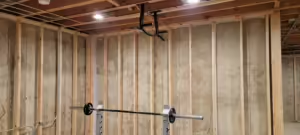
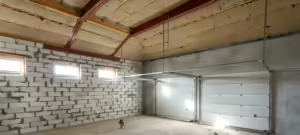

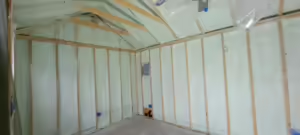
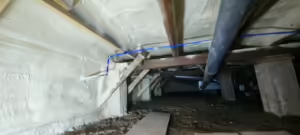
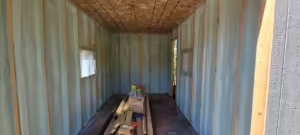
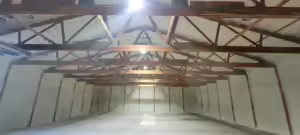


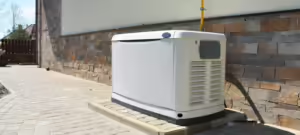
 Professional Insulation Services
Professional Insulation Services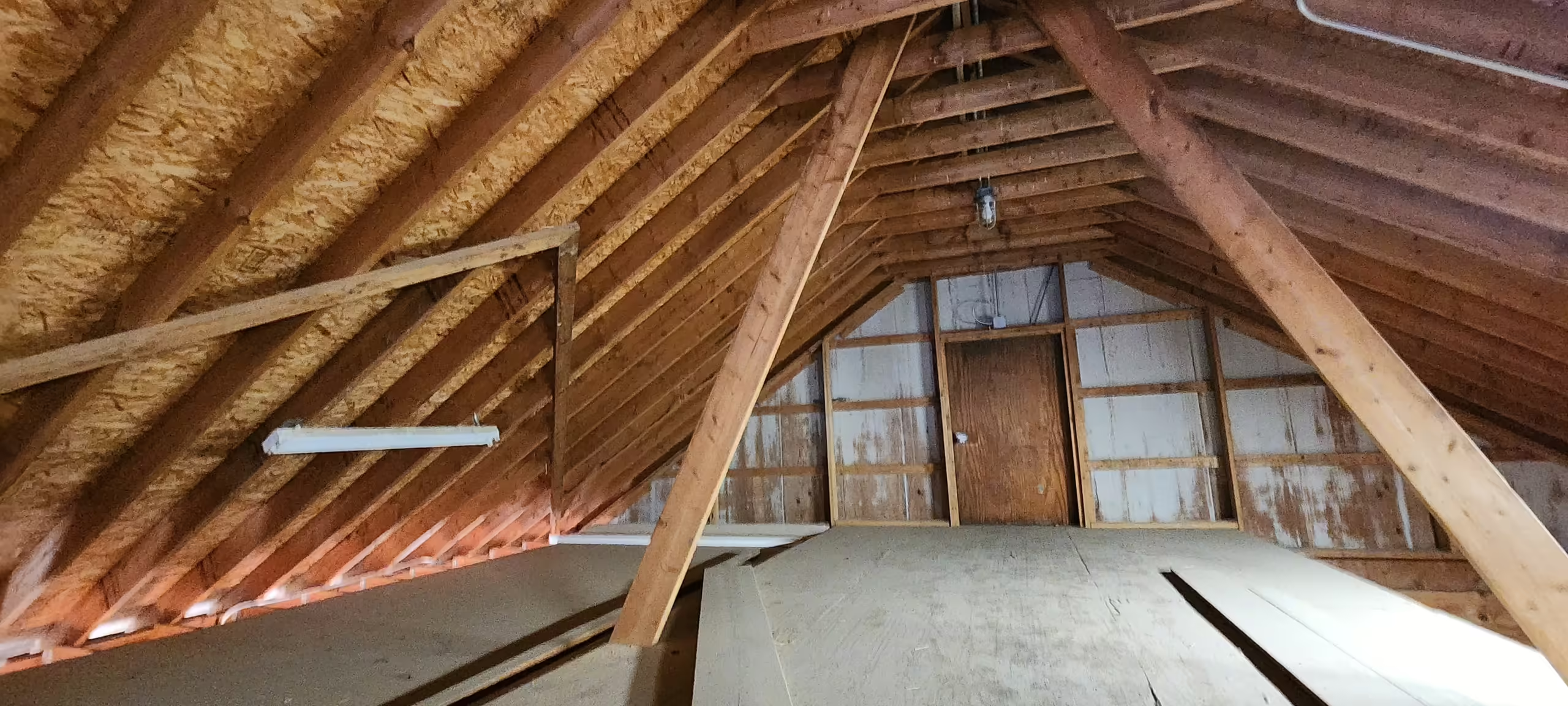 Attic Insulation Services
Attic Insulation Services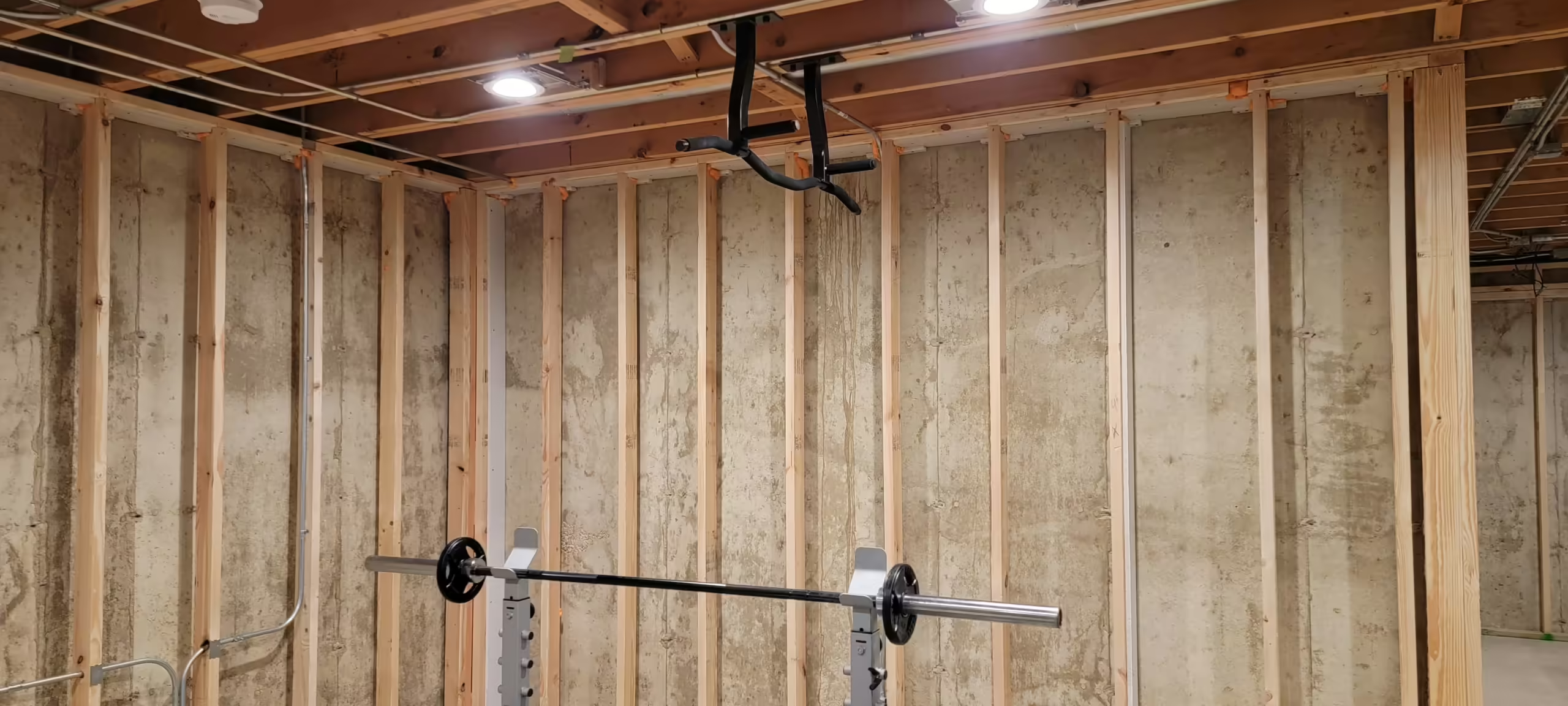 Basement Insulation
Basement Insulation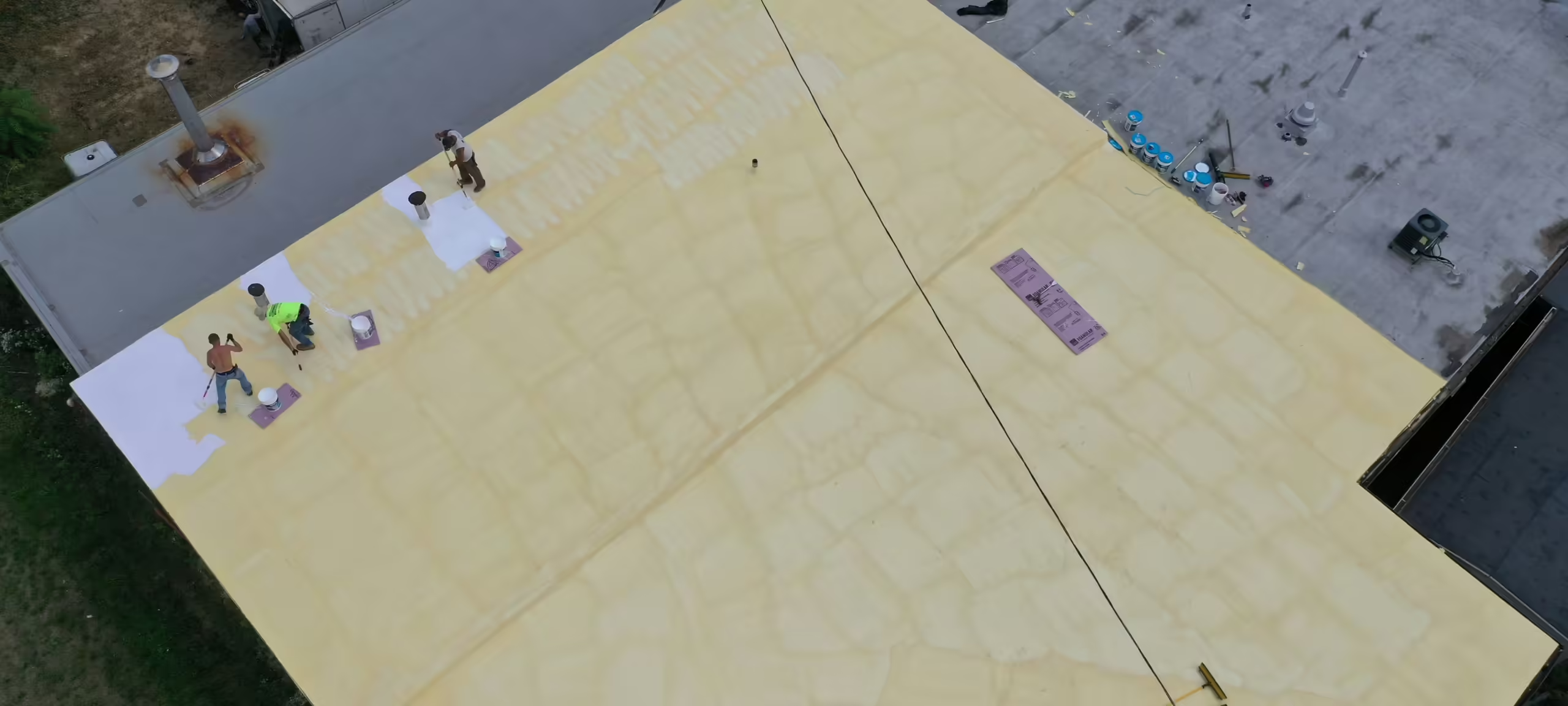 Commercial Insulation
Commercial Insulation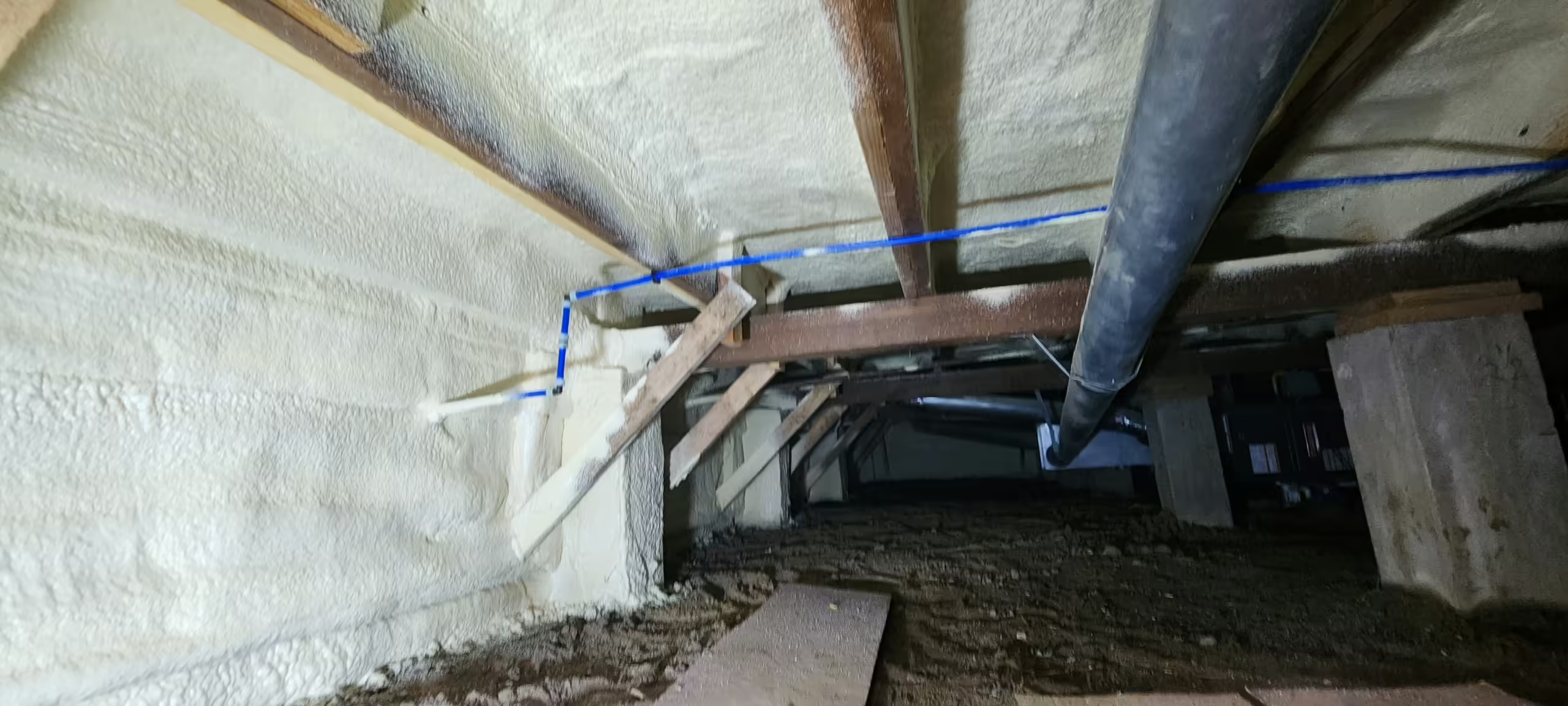 Crawl Space Insulation
Crawl Space Insulation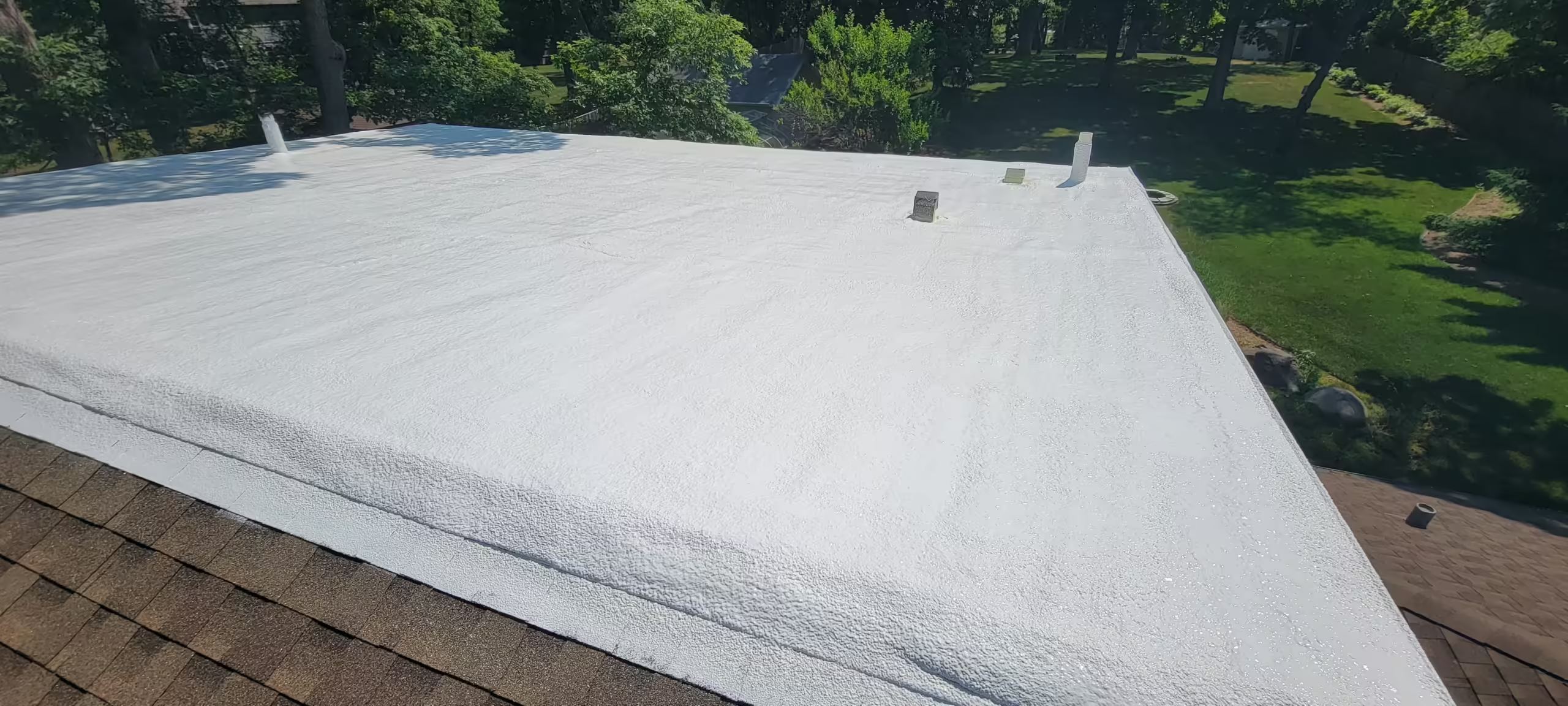 Exterior Wall Insulation
Exterior Wall Insulation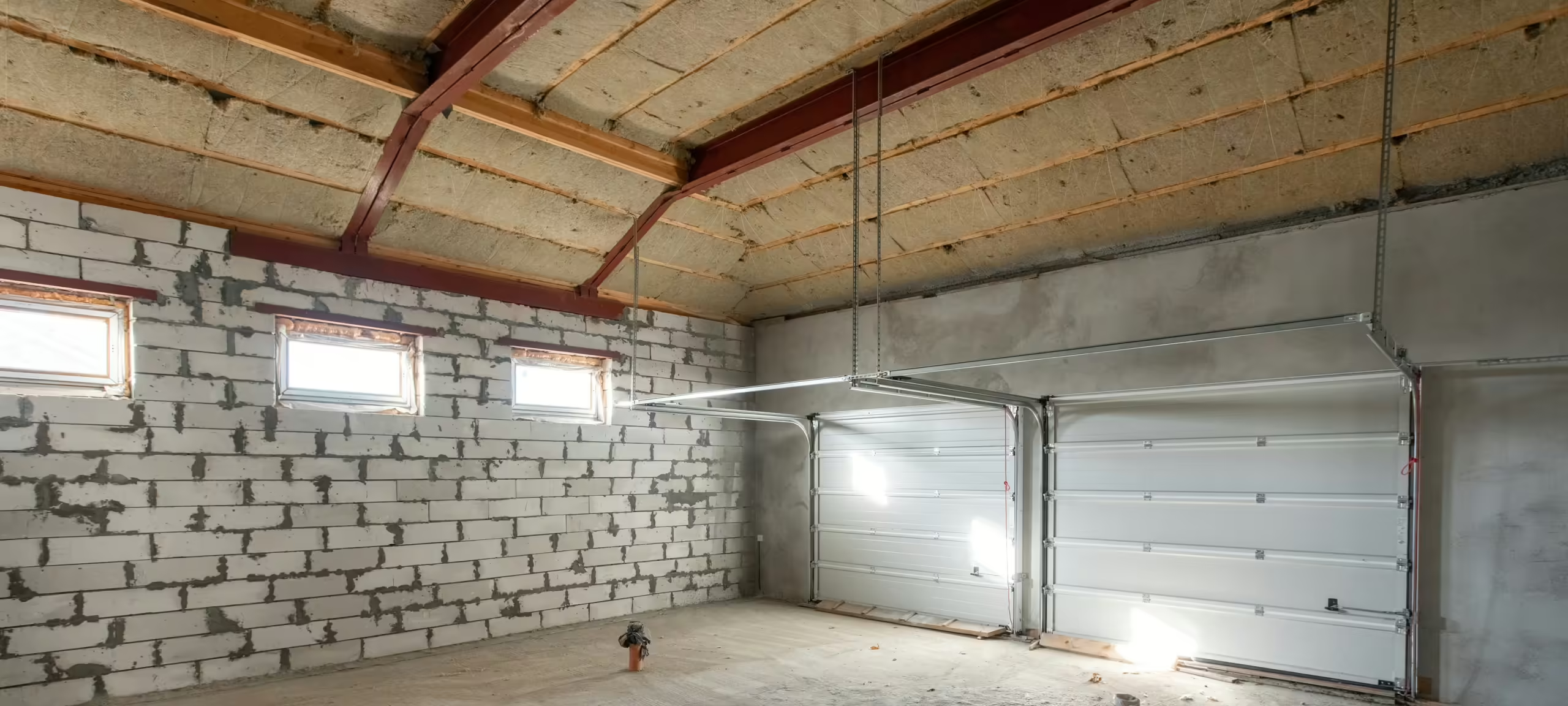 Garage Insulation
Garage Insulation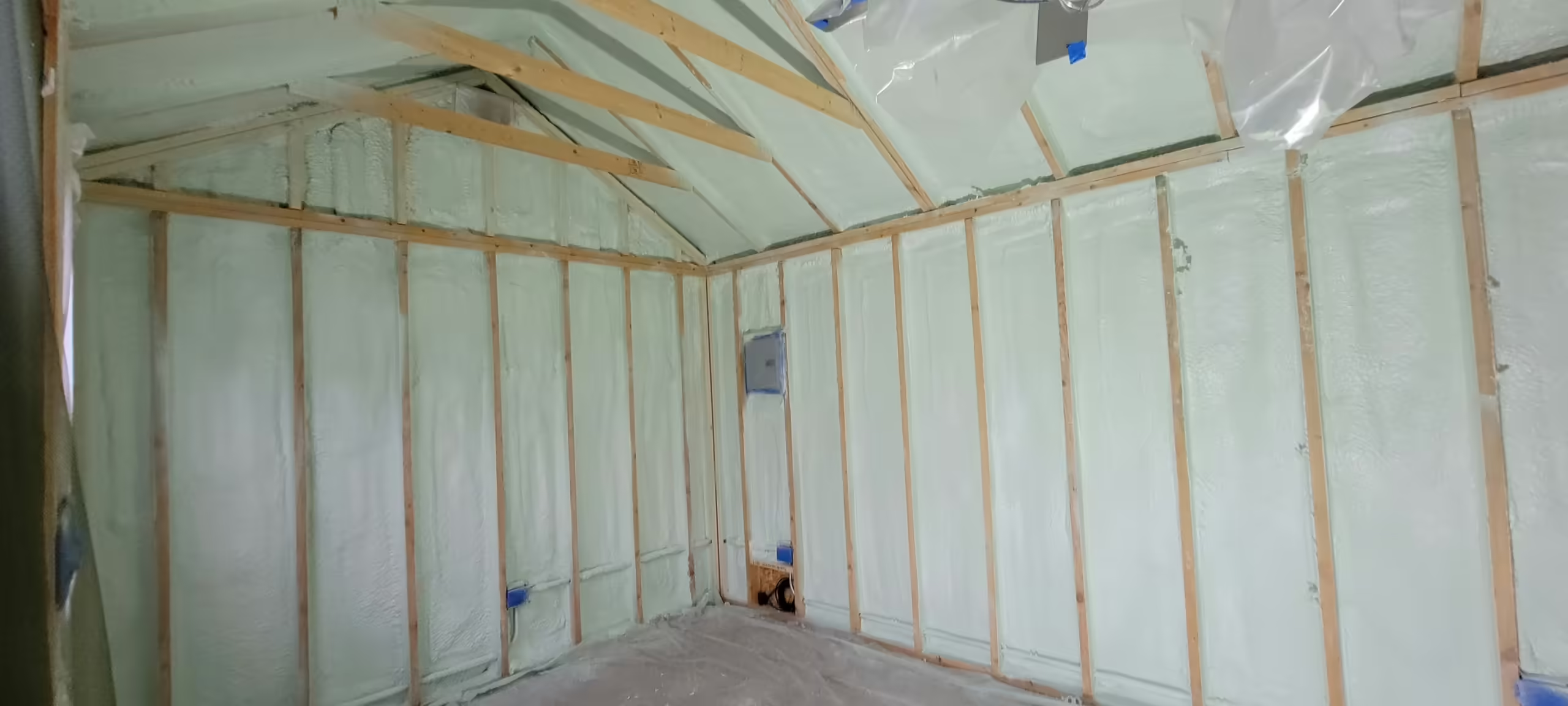 Interior Wall Insulation
Interior Wall Insulation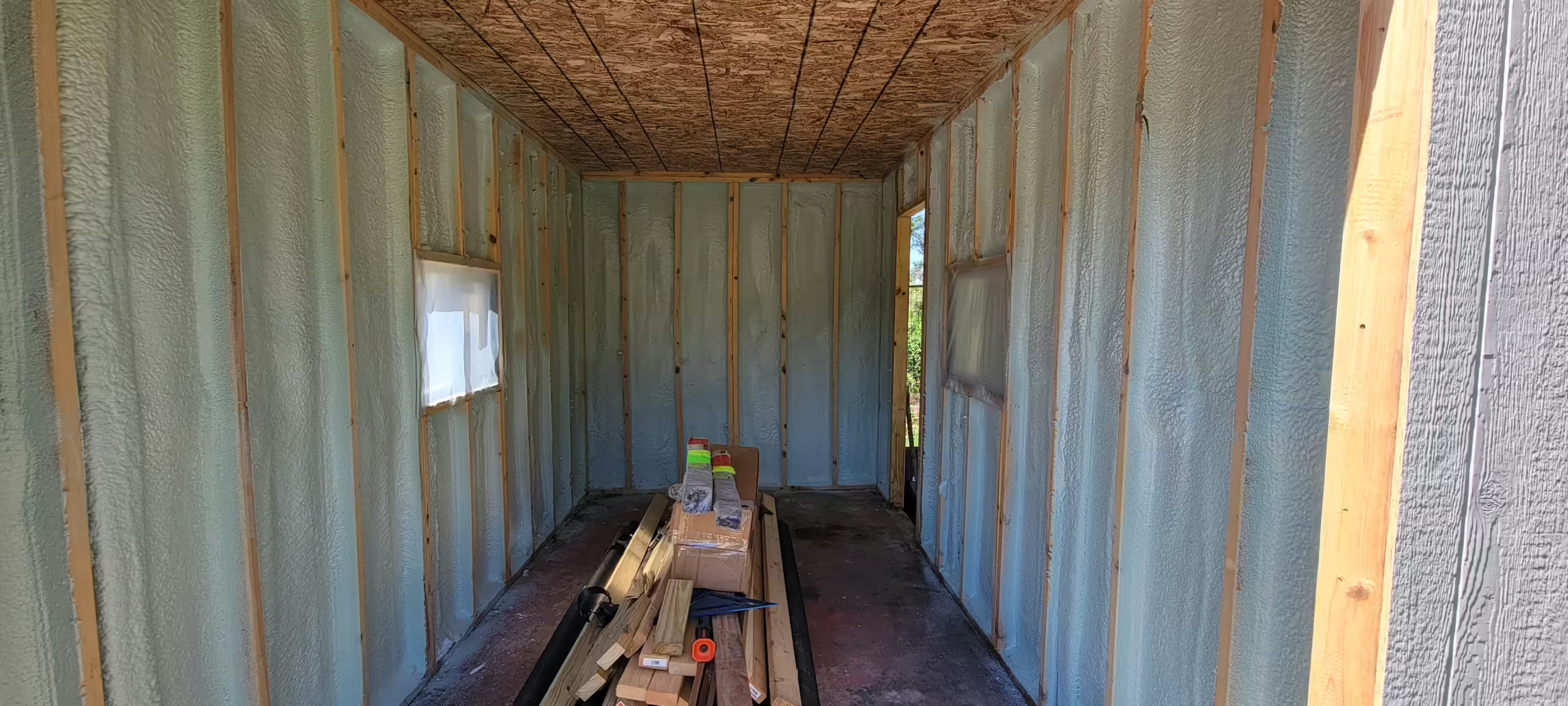 Shed Insulation
Shed Insulation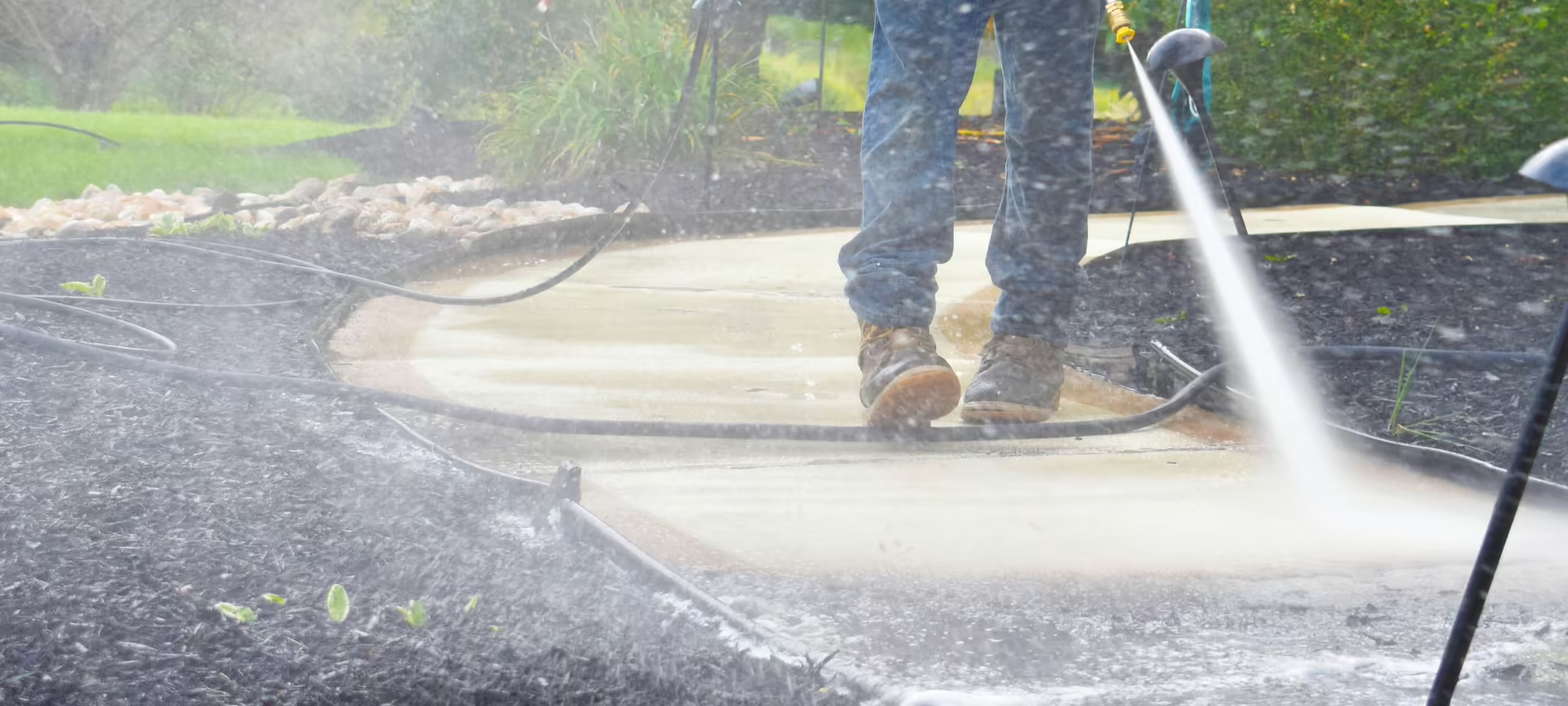 Power Washing
Power Washing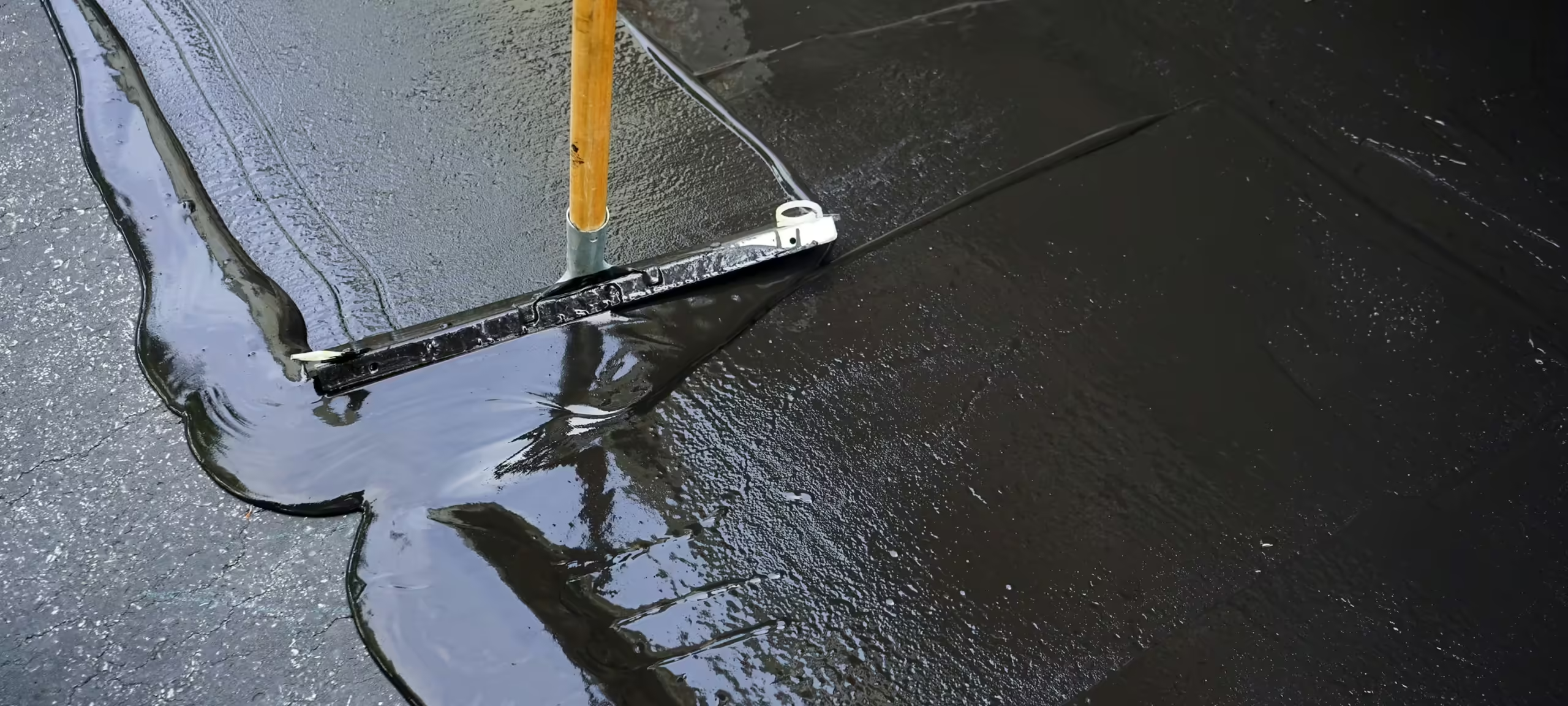 Sealcoating
Sealcoating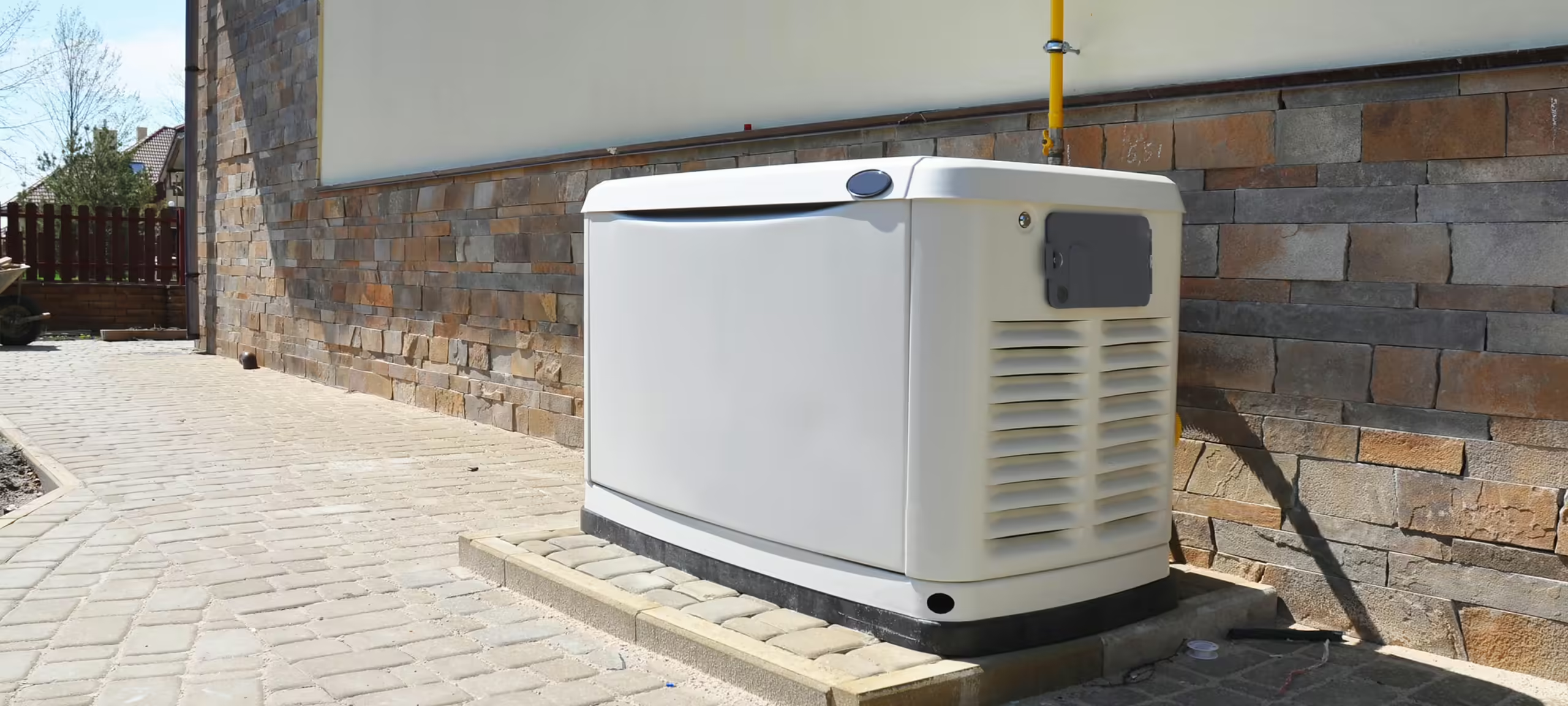 Backup Power Generators
Backup Power Generators Lake County Insulation
Lake County Insulation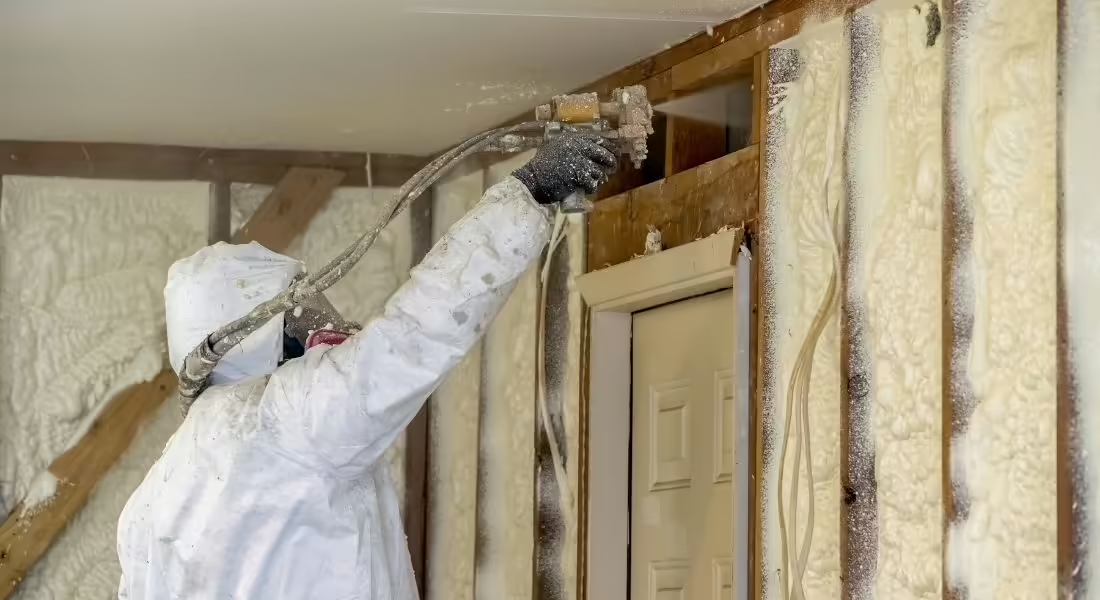 Spray Foam Insulation Guides
Spray Foam Insulation Guides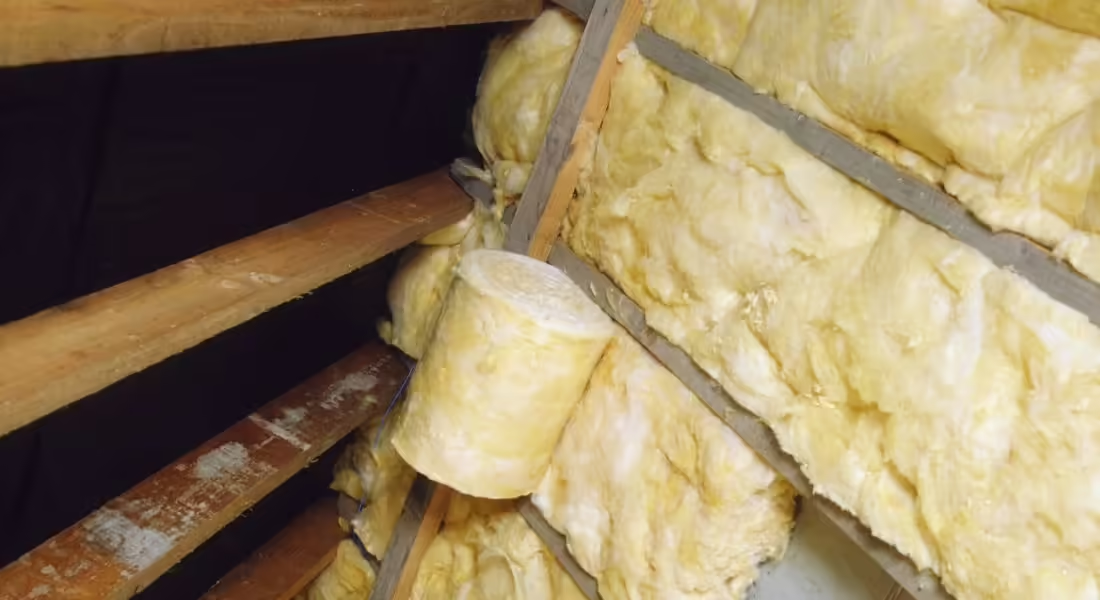 Insulation Guide
Insulation Guide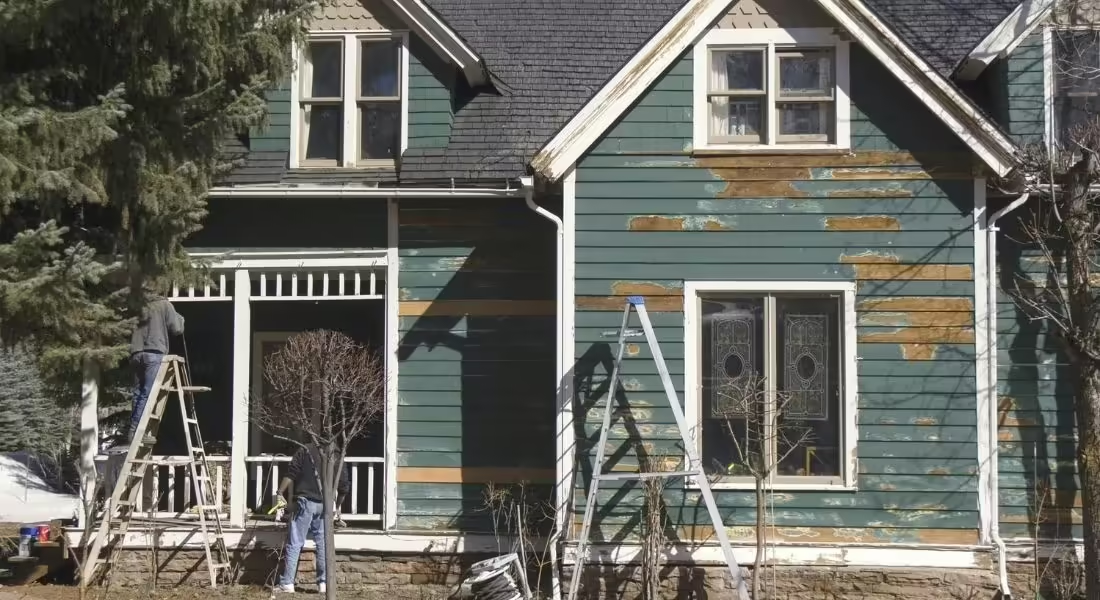 Home Improvement & Maintenance Guide
Home Improvement & Maintenance Guide